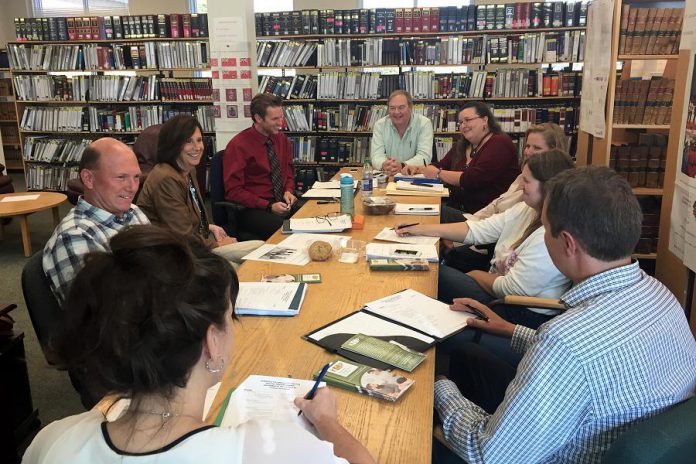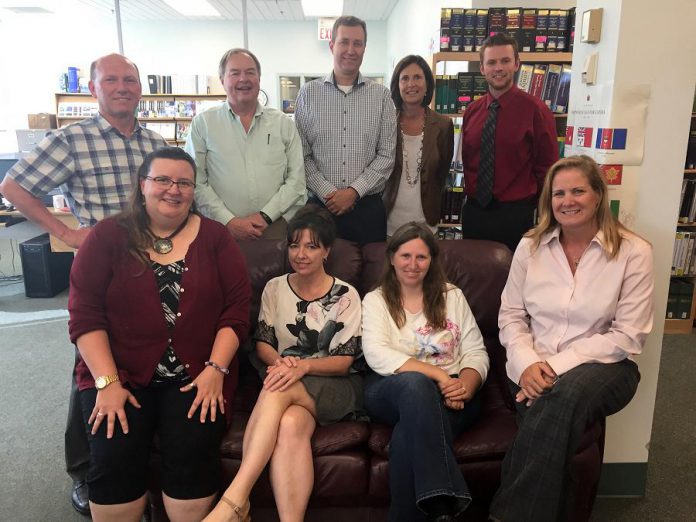
When the waters are choppy, when the going gets tough, the best thing to do is to make sure you have as much information as possible and a hand on the steering wheel.
That’s exactly what Kawartha Collaborative Practice does for couples who are divorcing: ensures the information they need to make decisions about their respective futures is readily available, and allows them the chance to have a hand in steering the ship.
More and more, couples are considering collaborative law process for their divorces, says Lindsay family lawyer — and a member of Kawartha Collaborative Practice — Jarret Johnston.
“It’s definitely growing,” he says. “More and more people are saying ‘Yes, I’ve heard of that. Tell me more.'”
In a collaborative process, each individual, represented by a lawyer, meets to find ways to end the marriage that leave both spouses in control of their own futures.
Rather than apply a traditional financial framework, the collaborative process allows for the consideration of other factors — children, heirlooms, property, and health. Rather than going to a courtroom where the proceedings are a matter of public record, the discussions in collaborative law are held privately, in confidence.
According to the Ontario Collaborative Law Federation, the “heart of Collaborative Practice or Collaborative Divorce … is to offer you and your spouse or partner the support, protection, and guidance of your own lawyers without going to court.”
Collaborative practice also holds space for other professionals to assist the process, in many cases, cutting costs and time. Financial experts and family professionals can assist in making information available and guiding respectful and efficient conversation.
Working in collaboration with lawyers and professionals, Johnston says, the couple is able to divorce privately, expediently, and respectfully.

“It’s so important for clients to know about this opportunity,” he says. “There are so many couples who are either working out their own agreements and missing things, or getting locked into lengthy litigation unnecessarily. This process can be the answer.”
Johnston uses an example of the potential tax consequences of selling family property or dividing investments.
A couple that writes their own agreement may not consider these unforeseen tax consequences — but it wouldn’t be missed in a collaborative process.
There would be potential ways to save both parties significant funds if the property, pension, and investments are untangled the right way.
Another example is the difficulty that arises at the start of a divorce, when difficult decisions need to be made quickly — decisions such as “Who will take the kids to dance next week?” or “How will I pay the household bills?”
Johnston explains that in the collaborative process, these decisions are sought immediately, with meetings and discussions happening right away, rather than the prolonged back-and-forth communication in traditional settlement negotiation between lawyers or due to significant delays in the court system.
“In a collaborative process, we may be sitting down at a table and rolling our sleeves up at the very first meeting,” he says. “These kinds of decisions can be made virtually immediately.”
“I definitely think more people should be considering collaborative process. As lawyers, we all have that file at court where we think this has gone on too long, perhaps this could have resolved more efficiently if we just let the parties engage and converse at a meeting, rather than letting the lawyers dictate the decisions and process.”
Collaborative practice allows that to happen, he says, by involving other financial and family professionals and by considering those things the court process may not be as well-equipped to consider and deal with in a timely fashion — things that might be more emotional, health issues, immediate financial chaos, and the overall well-being of the children.
If you are facing a separation or a divorce and don’t want to go through the traditional court process, call 705-928-3218 or visit www.kawarthacollaborative.com. You can also find them on Facebook.



























